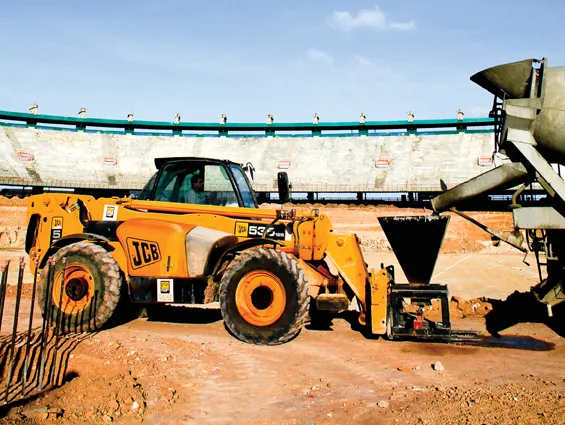A consortium of Brazil's Mendes Junior and Spain's Isolux Corsán could lose its US$208 million contract to build part of the northern section of the Mario Covas beltway around the Brazilian city of São Paulo.
The consortium, led by Mendes Junior, is falling behind schedule because of cash flow problems, according to São Paulo state highway company Dersa. The deal was signed in January 2013, local paper Folha de São Paulo reported.
April 10, 2015
Read time: 3 mins
RSSA consortium of Brazil's Mendes Junior and Spain's 1392 Isolux Corsán could lose its US$208 million contract to build part of the northern section of the Mario Covas beltway around the Brazilian city of São Paulo.
The consortium, led by Mendes Junior, is falling behind schedule because of cash flow problems, according to São Paulo state highway company6344 Dersa. The deal was signed in January 2013, local paper Folha de São Paulo reported.
If matters do not improve this month, "it is very likely that we will terminate our agreement based on a breach of contract," Dersa president Laurence Casagrande was quoted as saying.
The 180km Rodoanel Mário Covas beltway is partially with a radius of around 23km from the geographical centre of Sao Paulo. It was named after Mário Covas, mayor of the city between 1983–1985 and a state governor from 1994-2001 until his death from cancer. It is a controlled access highway with a speed limit of 100kph.
The northern segment is the last of the bletway’s four sections to be built. Construction of Dersa’s stretch of the northern section was originally scheduled to be completed last year but was rescheduled to January 2016. However, at the beginning of this year, Dersa pushed back the completion date to the first half of 2017.
If terminated, Dersa could transfer the work to local construction company Odebrecht, which submitted the next best offer for the contract. If not, a new tender for the remaining work could be launched, according to the news report.
Mendes Junior is one of many engineering companies under investigated by the federal government's so called car wash corruption probe.
The northern section connects the eastern and western sections of the Rodoanel Mario Covas beltway, passing through the cities of Aruja, Guarulhos and Sao Paulo. The project involves 44km of road, including 111 structures and seven tunnels.
The northern section tender was split into six lots, five of which have tunnels: the 6.4km lot 1 includes a 1.1km tunnel; the 4.9km lot 2 includes two tunnels of 350m and 850m length; the 3.6km lot 3 has two tunnels, 1.6km-lomg and 1km-long; the 9km lot 4 has a 290m-long tunnel. The 7.9km lot 5 has a 1.1km-long tunnel. The 12km lot 6, from Guarulhos and Aruja municipalities, does not include tunnels.
The consortium, led by Mendes Junior, is falling behind schedule because of cash flow problems, according to São Paulo state highway company
If matters do not improve this month, "it is very likely that we will terminate our agreement based on a breach of contract," Dersa president Laurence Casagrande was quoted as saying.
The 180km Rodoanel Mário Covas beltway is partially with a radius of around 23km from the geographical centre of Sao Paulo. It was named after Mário Covas, mayor of the city between 1983–1985 and a state governor from 1994-2001 until his death from cancer. It is a controlled access highway with a speed limit of 100kph.
The northern segment is the last of the bletway’s four sections to be built. Construction of Dersa’s stretch of the northern section was originally scheduled to be completed last year but was rescheduled to January 2016. However, at the beginning of this year, Dersa pushed back the completion date to the first half of 2017.
If terminated, Dersa could transfer the work to local construction company Odebrecht, which submitted the next best offer for the contract. If not, a new tender for the remaining work could be launched, according to the news report.
Mendes Junior is one of many engineering companies under investigated by the federal government's so called car wash corruption probe.
The northern section connects the eastern and western sections of the Rodoanel Mario Covas beltway, passing through the cities of Aruja, Guarulhos and Sao Paulo. The project involves 44km of road, including 111 structures and seven tunnels.
The northern section tender was split into six lots, five of which have tunnels: the 6.4km lot 1 includes a 1.1km tunnel; the 4.9km lot 2 includes two tunnels of 350m and 850m length; the 3.6km lot 3 has two tunnels, 1.6km-lomg and 1km-long; the 9km lot 4 has a 290m-long tunnel. The 7.9km lot 5 has a 1.1km-long tunnel. The 12km lot 6, from Guarulhos and Aruja municipalities, does not include tunnels.






